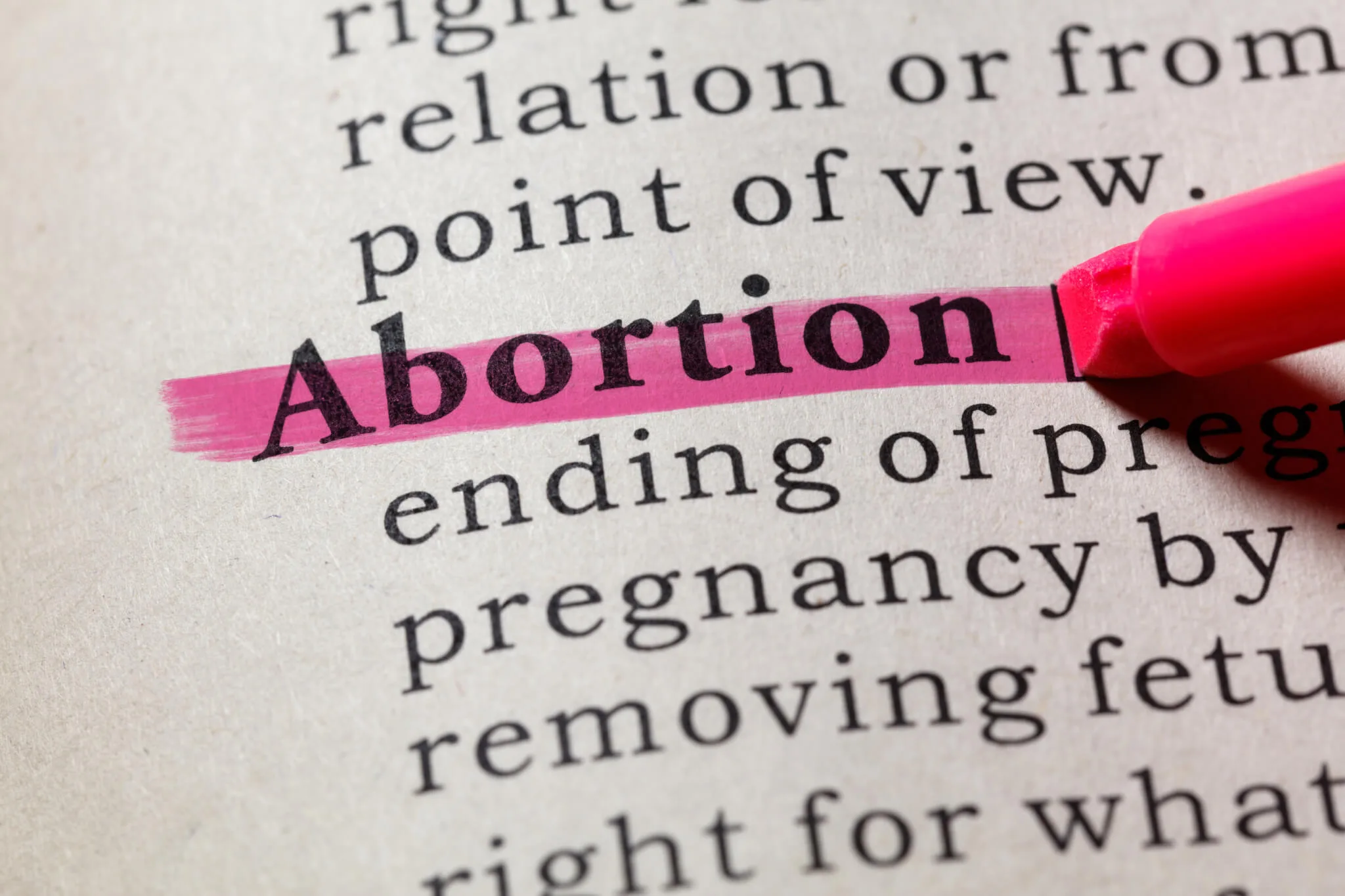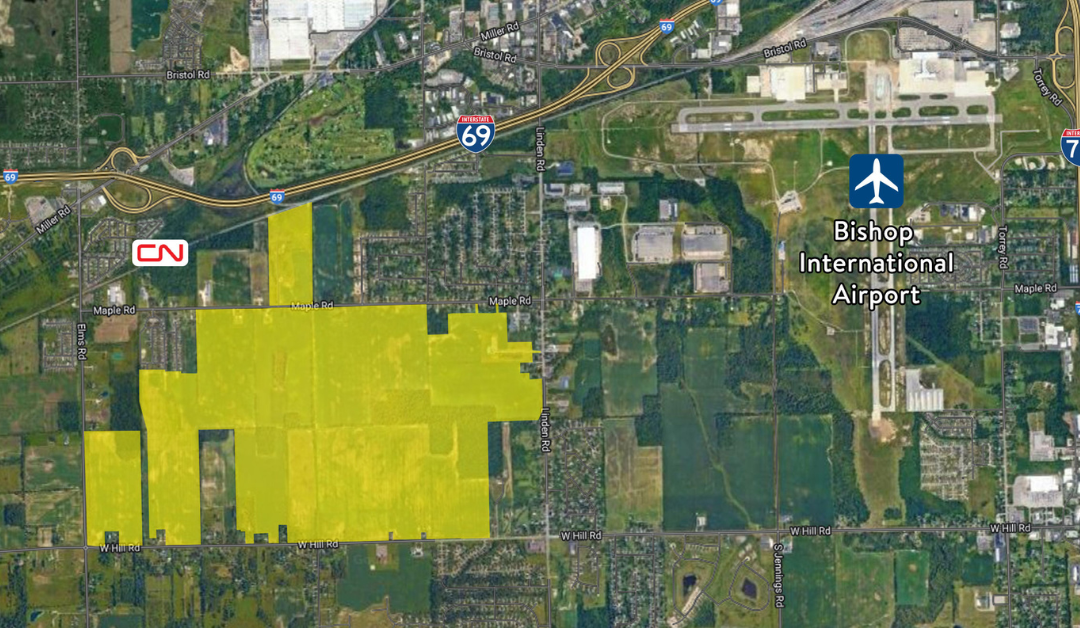
In the aftermath of the US Supreme Court’s decision to gut constitutional protections for abortions, some not-so-familiar medical terms and phrases have been floating around Michigan. As part of our ongoing coverage, we’ve assembled the following glossary to help readers better understand the situation at play.
MICHIGAN—A groundswell of online information about abortion—some correct, some incorrect—has dominated Michiganders’ social media feeds following the US Supreme Court’s decision to overturn rights established in Roe v. Wade. With so many moving parts in play, confusion is at an all-time high regarding what constitutes an abortion, whether it’s still legal, and what might be next.
As part of our ongoing coverage of the ruling’s implications in Michigan, The ‘Gander staff is working to bring readers as much real-time, factual information as possible—often wading through unfamiliar medical terms and policy jargon.
First, here are the facts:
Abortion is still legal in Michigan thanks to a temporary injunction from a judge that keeps an abortion ban passed in 1931 at bay. The state Supreme Court has been asked to weigh in on the issue. You can read more about the legal battle for abortion rights in Michigan here, and here.
In the meantime, all 83 county prosecutors in Michigan are prohibited by court order from prosecuting any physicians for providing abortion services. Attorney General Dana Nessel and a cohort of prosecutors representing the state’s most populated counties have also vowed not to pursue criminal charges for abortion providers—regardless of what happens in the state courts.
Those who receive abortions also cannot be charged. Most major reproductive health providers in Michigan are also still offering abortion services, including Planned Parenthood clinics and providers at Beaumont-Spectrum Health, the state’s largest medical network—despite prior statements that the latter had canceled its services, in part over “confusion” on state laws.
Second, here’s a glossary, which we’ll continue to update:
Abortion: Abortions are medical procedures to terminate a pregnancy by removing pregnancy tissues or products of conception—the joining of a sperm and egg. Typically, the terms “fetus” and “placenta” are not used until after eight weeks of pregnancy, according to the Harvard Medical School. Abortions can be administered with a pill or by surgery. They also cover a gamut of medical situations, from a pill taken during the first trimester that removes pregnancy tissue and ends a pregnancy, to a surgery late in pregnancy when the mother’s life is at risk.
Roe v. Wade: Roe v. Wade is the landmark 1973 Supreme Court case that found people had a constitutional right to abortion before the point of viability (usually around 24 weeks), on the grounds of privacy and due process. That precedent stood for nearly 50 years before the Court’s ruling in Dobbs v. Jackson Women’s Health Organization overturned the ruling this month, permitting states to ban abortion at any point.
Dobbs v. Jackson Women’s Health Organization: Dobbs v. Jackson Women’s Health Organization is the Supreme Court decision reached on June 24, 2022, overturning Roe and eliminating the constitutional right to abortions. The case was triggered by a Mississippi state law that banned most abortions after 15 weeks, well before the Roe line of “viability.” Lower courts had deemed that the Mississippi abortion law violated the Constitution before the Supreme Court published its ruling. With a 6-3 conservative advantage, the court went against the precedent established in Roe to uphold the state ban. Following the decision, the right to abortion is now or soon to be banned in six states, severely restricted or in another 12, and imminently threatened in another 12.
Michigan’s 1931 Abortion Ban: A nearly 100-year-old law still on the books in Michigan bans all abortions except in cases to save the life of the mother. It is suspended under order of the Michigan Court of Claims through a temporary injunction. The current law has been in place since 1931, but the Roe decision made it unenforceable for the last 49 years. Now that Roe is overturned, the status of the law depends on whether or not Michigan courts deem the ability to ban abortions constitutional.
Preliminary Injunction: These are orders issued by a judge to temporarily suspend enforcement of a statute that’s being challenged in court while the litigation proceeds. The goal is simply to preserve the status quo until the legal challenge can be resolved—in this case, preventing possible irreparable harm by enacting one of the strictest abortion bans in the US.
Trigger Laws: Leading up to the Dobbs decision that overturned Roe, 13 states adopted “trigger laws,” which were bans meant to kick in following the dissolution of Roe. Though Michigan did not adopt a law in anticipation of the Supreme Court decision, the 1931 ban effectively acts as a trigger law and would’ve taken effect if not for the recent injunction.
Life of the Mother: Abortion to save the life of the mother is a common, though not universal, exception in many abortion bans. Under Michigan’s temporarily suspended abortion ban, the “life of the mother” exception means that a physician must determine that an abortion is necessary to save the life of the mother. In other states, a medical consensus must determine the procedure is necessary. Experts have said the “preserve the life” phrase within Michigan’s law creates room for uncertainty, because it would require calculating risks in each individual case and drawing a line where the physician deems abortion legal. Deaths related to pregnancy are exponentially more common than deaths related to abortion.
Ectopic Pregnancy: Ectopic pregnancies are rare situations in which the fetus develops outside of the uterus. In ectopic pregnancies, the fetus has no chance of survival. These cases pose great health risks to the person who is pregnant, including the possible rupture of the fallopian tube. Ectopic pregnancies must be terminated in one of two ways, as the fetus cannot survive and they can pose serious risk to the mother, though the treatments are not technically considered abortion.
Heartbeat Bills: Heartbeat bills have been passed in many states that ban abortions after about six weeks, the earliest that cardiac activity can be picked up by an ultrasound. But these bills often rely on inaccurate monikers; the developing embryo does not have a heart at this stage. Furthermore, the six-week mark usually comes before many people know they’re pregnant.
Medication Abortion: The “abortion pill” refers to two medications used to end pregnancies at home. Though they are prescribed by a doctor, the patient can take them in the privacy of their home. Mifepristone is used to prevent the growth of the pregnancy. Misoprostol empties the uterus and causes bleeding. Studies have found that the pill is extremely effective, as it induces an abortion more than 96% of the time. The earlier it is taken during pregnancy, the more likely it is to terminate a pregnancy, though women may be able to take an extra dose if the first attempt doesn’t work. According to Planned Parenthood, you can get the pill up to 11 weeks into pregnancy, roughly the equivalent of a first trimester.
These pills also reside in a relatively murky legal area. US Attorney General Merrick Garland has said that individual states lack the right to ban FDA-approved drugs based on prior legal precedents. But numerous states are actively trying to block access to these pills, which can still be prescribed online.
Learn more about medication abortion in The ‘Gander’s prior coverage.
Abortion Reversal: Abortion reversal pills are taken to continue a pregnancy after originally taking medication to terminate a pregnancy. The American College of Obstetricians and Gynecologists recommends against taking these pills, which are not FDA-approved. Some health professionals have labeled the treatment as unproven, unethical, and dangerous.
Late-Term Abortions: Late-term abortions can refer to any abortion carried out after 21 weeks, late in the second trimester. The medical community tends to steer clear of the phrase because it is imprecise. Less than 2% of abortions nationally occur after 21 weeks. Many so-called “late-term” abortions are also carried out for medical necessity—in most cases, doctors attempt to save the life of the pregnant person and the fetus. The Supreme Court previously protected abortions before the point of “viability,” which has been understood to equate to about 24 weeks pregnant.
Viability: Viability is the point at which a fetus has “the ability to survive outside the womb,” according to the US Supreme Court, and was the fundamental line drawn in Roe to establish the point up to which women had the Constitutional right to abortions. Dobbs v. Jackson Women’s Health Organization challenged the viability reasoning established by Roe, and the conservative US Supreme Court used the case as leverage to overturn the precedent and abrogate the distinction. The current Supreme Court found that the legal use of viability was “arbitrary.”
Still, the definition of viability may have a role to play in many states deciding whether (and how) to restrict abortions, including Michigan. A ballot initiative to amend the state Constitution aims to ensure citizens’ rights to an abortion before the point of viability, while allowing legislators to regulate the procedure afterward—similar to the balance established by the precedent in Roe.
Reproductive Freedom for All: Reproductive Freedom for All is the name of a petition drive to amend the Constitution in Michigan to include the right to an abortion. In order to make the November ballot, the petition needs to collect roughly 425,000 signatures by July 11—a threshold organizers expect to meet, which represents 10% of the voters in the state’s last gubernatorial election.
If the drive collects enough signatures and the state Bureau of Elections deems them valid, then Michigan voters will decide directly (by simple majority vote) whether to enshrine those rights into the Constitution—which would be immune to a veto or changes from the Legislature.
In addition to protecting abortions before the point of viability, Reproductive Freedom for All also protects the right to contraception and prevents prosecution of doctors who legally administer abortions. If it passes, the 1931 abortion ban would be deemed unconstitutional and repealed.
CONTINUED: A Look at the Petition to Guarantee Abortion Rights for Michiganders
Politics

Michigan lawmakers look to break (another) state funding record for public schools
Democratic lawmakers are hashing out plans to bring state funding for Michigan’s public schools to another new, all-time high—and ensure teachers...

Mundy Twp. project gets state funding in effort to boost local manufacturing
More than $9 million awarded to a planned development project in Genesee County could provide a big boost to the local economy and help create...

It’s official: Your boss has to give you time off to recover from childbirth or get an abortion
Originally published by The 19th In what could be a groundbreaking shift in American workplaces, most employees across the country will now have...
Local News

More Michigan teens could soon take driver’s ed in their own schools
Privatization of driver’s education means that only 38 Michigan high schools offer affordable in-school driving classes for students. New grants...

That one time in Michigan: When we became the Wolverine State
How did Michigan become tied to an animal that's practically nonexistent there? Among the many nicknames that the state of Michigan has, arguably...





